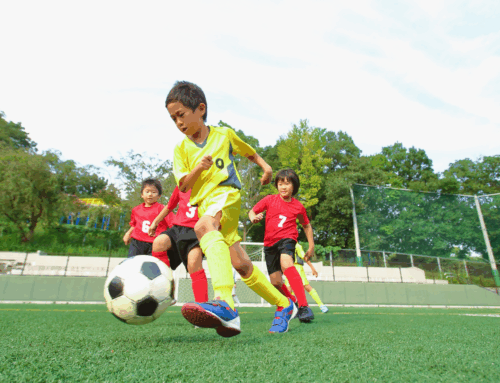Get our exclusive report. Download the iSport360 Club Switching Report Here – For Club Admins, Rec Leaders and Coaches.
The “I’m Not That Kind of Parent, But…”
We’ve all been there. The game ends, the tournament concludes, or tryouts wrap up, and then it happens—the email notification chimes. You already know what you’ll find before opening it: “Coach, I am not that kind of parent, but…”
And just like that, they’ve become exactly “that kind of parent.”
The Self-Awareness Paradox
What makes this phenomenon so fascinating is the lack of self-awareness. Parents preface their complaints or critiques with a disclaimer that they’re not the stereotypical overbearing sports parent, right before launching into behavior that defines exactly that stereotype.
It’s like starting a sentence with “I’m not racist, but…” or “No offense, but…”—the disclaimer itself is a red flag that what follows will contradict the opening statement.
Why We Do This
As parents, we’re wired to advocate for our children. We want to see them succeed, have fair opportunities, and be recognized for their efforts. This protective instinct comes from a place of love. However, the youth sports environment can amplify these feelings into something less constructive:
- We see our children as extensions of ourselves
- We’ve invested significant time, money, and emotional energy
- We often have a limited perspective on the bigger picture
- We may be reliving our own sports experiences through our kids
The Coach’s Perspective
For coaches and organizers, these communications can be frustrating. They’ve typically:
- Made difficult decisions based on numerous factors
- Consider the development of all players, not just one
- Factored in team dynamics and chemistry
- Balanced competitive goals with developmental objectives
- Made judgment calls in high-pressure situations
When parents immediately email after events, it suggests they believe their perspective trumps the coach’s professional judgment.
Trust the Process
Youth sports are about much more than winning or individual achievement. They’re about:
- Learning to face adversity – Not making the team, sitting on the bench, or losing games are all valuable life lessons
- Developing resilience – Bouncing back from disappointment builds character
- Understanding teamwork – Sometimes individual goals must be sacrificed for team success
- Building discipline – Following a system and trusting coaches develops important life skills
- Gaining perspective – Learning that sports are just one part of a balanced life
When parents jump in to “fix” every perceived slight or unfairness, they deprive their children of these valuable growth opportunities.
Breaking the Cycle
If you’re a parent involved in youth sports, consider these alternatives to the post-game/tryout email:
- Wait 24 hours before communicating concerns
- Ask questions instead of making accusations
- Consider the whole team, not just your child
- Trust the process and the professionals you’ve entrusted your child to
- Model good sportsmanship in your own behavior
For coaches and organizers, clear communication about expectations and decision-making processes can help prevent these situations. Transparency doesn’t eliminate disappointed parents, but it can reduce misunderstandings.
A Better Approach
Instead of “I’m not that kind of parent, but…” try:
“Coach, I’m trying to understand the team dynamics better. When you have time, could you help me understand what skills my child could work on to improve their playing time?”
Or simply:
“I noticed my child seemed disappointed after today’s game. Is there anything I should know to support them at home?”
The Bigger Picture
Youth sports participation has been declining in recent years, and overzealous parents are frequently cited as a contributing factor. The pressure, politics, and parental interference make sports less enjoyable for everyone—coaches, officials, and most importantly, the young athletes themselves.
By catching ourselves before we become “that kind of parent,” we contribute to a healthier sports environment that focuses on what really matters: kids enjoying physical activity, learning valuable life skills, and developing a lifelong love of sports.
So the next time you feel that email forming in your mind—the one that starts with “I’m not that kind of parent, but…”—take a deep breath. You might just be about to contradict yourself. And remember: trust the process, trust the coaches, and most importantly, trust your child’s ability to navigate their own sports journey.
Because in the end, it’s their journey, not yours.
About the Author:
Amy Masters is a proud sports mom, seasoned coach, and dedicated club administrator with over a decade of experience in youth athletics. She launched Jr Lions Field Hockey in Hunterdon County, growing it from just 40 players in its first season to over 150 by year three. Fueled by the growing passion and competitive spirit of local athletes, she went on to found Omega Field Hockey Club, now serving players across New Jersey and Pennsylvania.
A former collegiate athlete herself, Amy played field hockey at Lock Haven University, where her love for the game truly took root. Off the field (and somehow still finding time), she leads marketing for iSport360 and co-edits the Youth Sports Survival Guide—the largest youth sports newsletter in the world.
Learn more or request a demo of our youth sports software that is helping teams improve communication, organization and player development.
June 19, 2025





